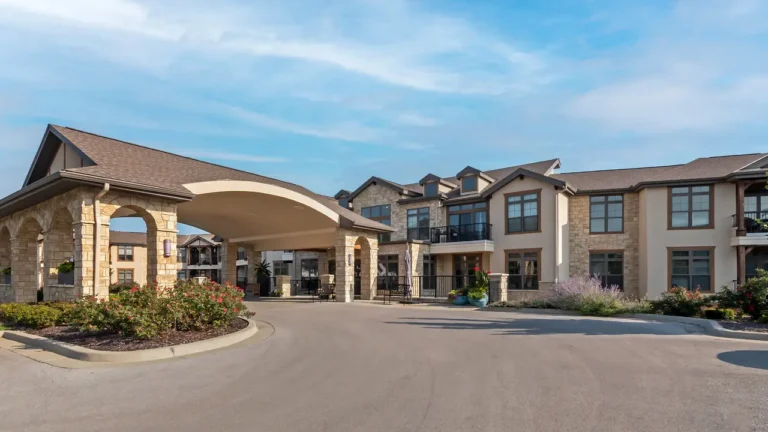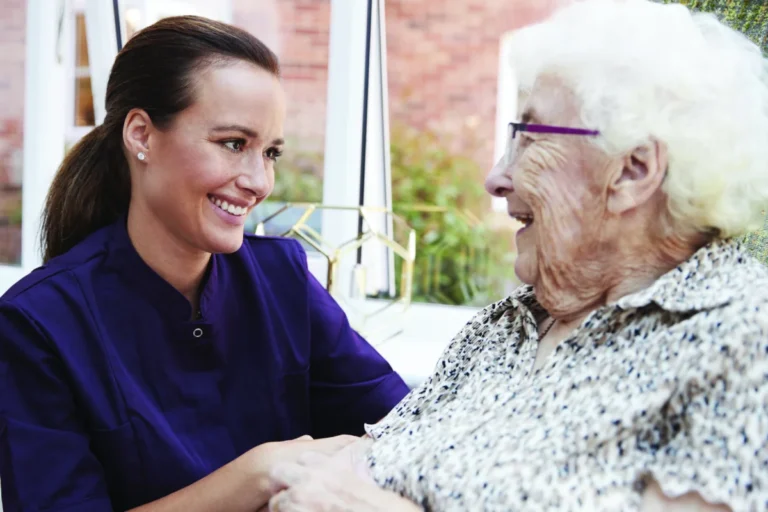Dementia is a complex and deeply impactful condition that affects the lives of millions of individuals and their families worldwide. Often used interchangeably with the disorder Alzheimer’s disease, there is a lot more to dementia than just one cognitive disorder.
Compassionate memory care caregivers and family members want to help individuals affected by dementia by sharing knowledge, advice and encouragement. Navigating dementia with a loved one requires a set of skills, including understanding, coping and providing care for loved ones.
Research is exploring the complex world of this condition and gaining strides every day in understanding how dementia works and how it can be treated.
What Is Dementia?
Dementia is an umbrella term describing symptoms of any cognitive loss, including changes in judgment, personality, memory loss – these all fall under the dementia category. Dementia, in all its forms, is very common with more than 7 million people in the United States living with one or more of the disorders today.
Dementia has an incredible impact on seniors who have it as well as their loved ones. In the early stages of dementia, families may choose to use in-home care or family members as caregivers (both paid and unpaid) to care for their loved ones.
The effect on caregivers can be tremendous and lead to a variety of challenges, including mounting health care costs, time-consuming tasks and supervision, as well as caregiver burnout. Being able to cater to individual needs with an individualized care plan can help ease the burden on caregivers and family members.
Compassionate memory care through a community, such as those with Tutera’s Thrive in the Courtyard Memory Care program, can help mitigate the effects of dementia by enhancing the quality of cognitive wellness for seniors. With individualized care plans catered to individual needs, including memory care programming and activities, the benefits of senior memory care programs are tremendous.
What Is Alzheimer’s Disease?
Alzheimer’s disease, often used interchangeably with the term “dementia,” is a specific type and the most well-known form of dementia – with a specific set of symptoms and disease progression that can be predicted and treated throughout every stage.
Alzheimer’s disease is the sixth leading cause of death in the country and affects more than 5 million people. It is progressive and can last years to decades, getting worse over time until individuals become nonverbal with limited mobility and extensive memory loss.
According to The Alzheimer’s Association, approximately 1 in 3 seniors die with Alzheimer’s or another form of dementia, surpassing the mortality of breast cancer and prostate cancer combined.
Individuals with Alzheimer’s will progress through these stages, but every cognitive wellness journey is different, and it may not be at the same rate or way as others have progressed.
Factors such as health, genetics, early detection, treatments and more can influence the progression of Alzheimer’s and the quality of life during the disease.
- Early-Stage Alzheimer’s: While symptoms may have been building and impairing the brain previously to this, symptoms become more apparent in this stage, including memory loss, confusion and difficulty with problem-solving.
- Middle-Stage Alzheimer’s: This stage is generally the longest and may last for years. In this stage, individuals experience increased cognitive memory loss, personality changes and difficulty with activities related to daily living, such as hygiene, cooking for themselves and bathing. At this stage, individuals may begin to wander and get lost, feel agitated during confusing periods and experience intense mood swings.
- Late-Stage Alzheimer’s: This is the final stage of the disease, and seniors will need full-time care as physical abilities have declined. Seniors with late-stage Alzheimer’s are very limited in their communication, including becoming nonverbal. At this stage, they’re likely to have difficulty recognizing loved ones.
Dementia is an umbrella term for a group of cognitive wellness disorders that indicate symptoms of cognitive loss, such as changes in personality, personal judgment and increased memory loss. All of these disorders are considered dementia disorders.
Treating Dementia and Alzheimer’s With Thrive in the Courtyard Memory Care
Compassionate memory care is a type of senior care that addresses the needs of those with Alzheimer’s, dementia and other types of cognitive impairment. Senior living communities that work with memory care residents are curated to meet individual cognitive wellness needs. This specialized care offers social interaction with neighbors, team members and loved ones, allowing assisted living facilities to offer support for residents with dementia.
Tutera is dedicated to providing comprehensive care for older adults with Alzheimer’s or other types of dementia, as well as supporting their families. Tutera communities have a specialized program called Thrive in the Courtyard Memory Care, which is specially designed to cater to the individual needs of a senior with dementia.
When a family member is living with dementia, it can be a daunting task to explore the various means of assistance, all aimed at enhancing the quality of life for individuals with dementia and promoting their cognitive wellness.
The Thrive in the Courtyard Memory Care program places a strong emphasis on ensuring safety, engagement and comfort for residents. This includes a range of daily activities, secured exit doors and continuous monitoring for their well-being.
Individuals in Thrive in the Courtyard Memory Care programs are encouraged to decorate their homes with pictures and objects that bring them joy and evoke memories. This practice promotes a sense of tranquility and serenity. This helps them feel calm and peaceful.
As a part of the Thrive in the Courtyard Memory Care program, every new resident or their family completes a life history survey, which helps assess their personality and desired lifestyle. This essential step in memory care personalization forms the foundation for crafting an individualized care plan tailored to each person’s unique requirements.
What Does the Thrive in the Courtyard Memory Care Program Offer?
Residing in compassionate memory care is centered on a structured regimen that prioritizes routine, comfort and security. With a dedicated team of caregivers, nurses, chefs and other health care professionals, the cognitive wellness of residents takes precedence.
Our team takes the time to understand your loved one and is committed to enhancing their physical and cognitive health. This stable environment provides assurance to both residents and their families, ensuring they receive exceptional dementia care. The benefits of memory care are substantial by incorporating a safe and secure home with trained team members to assist with activities of daily living for those with dementia.
In the typical day of compassionate memory care, residents receive assistance with their morning routine, including getting ready for the day, and can savor nutritious meal options either in their own living spaces or in the communal dining area. At a memory care facility, the trained staff and team help enhance the daily lives of residents by encouraging interactions, reducing isolation and taking care of the mind in every way they can.
Next, seniors engage in sensory activities that encourage individuals with dementia to express themselves in a way that suits their unique communication style.
Throughout these experiences, care experts are present, fostering a warm, welcoming and familiar atmosphere within the community. This approach contributes to the improvement of cognitive wellness and overall mood during every interaction.
About Tutera Senior Living & Health Care
At Tutera Senior Living & Health Care, we’re committed to providing seniors with quality care that supports their emotional, intellectual and physical well-being. Using individualized care plans, empowering wellness programming and clinical excellence, we’re able to restore the quality of life for many seniors. Interested in learning more about Tutera Senior Living? You can use our community finder tool to locate a community near you or call us today with any questions.







